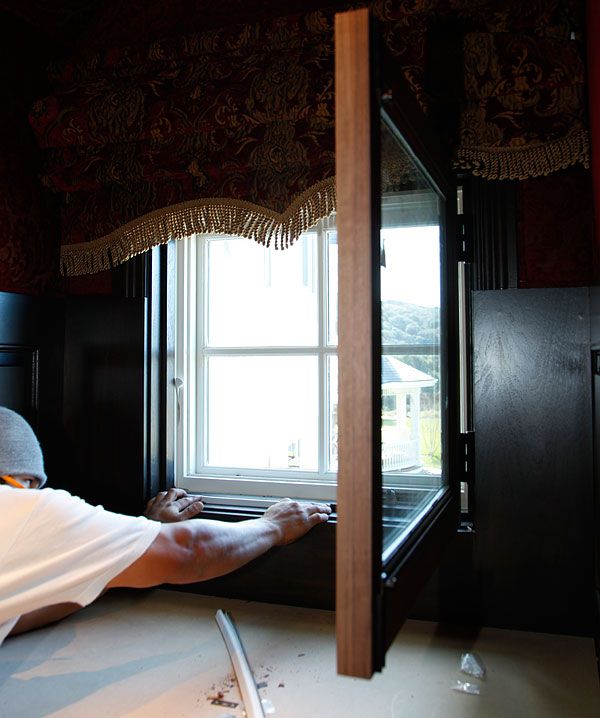Black Locust for Window Sash
Black Locust wood is naturally durable, but unstable and prone to movement and cracking. April 13, 2010
Question
Has anyone made black locust window sash? I have a customer that wants to use it. Please let me know how it went.
Forum Responses
(Architectural Woodworking Forum)
From contributor J:
I have not built sash from black locust, but our shop did use some for sills in entryways a few years ago. It is not a stable wood, nor does it glue well, plus some people develop contact dermatitis from handling it. I would not recommend it for sash, despite its rot resistance.
From the original questioner:
The sample plank I have has ring checks, wind, bow, and looks splintery. I'm going to mill some, shape and rabbet it, and see what happens.
From Gene Wengert, forum technical advisor:
You will find that the wood machines poorly due to the high density. If it has ring checks or shake, then it is also bacterially infected and will likely have an unpleasant odor every time it gets wet. It is not unusual to find that the MC of this wood is higher than desired with wet pockets in an otherwise dry piece of wood. As mentioned, warping is a problem as it wets, dries, wets, etc. Bottom line: it is not a good use for this wood.
From contributor F:
I agree with Gene’s analysis, but why do all of the architects I work with keep specifying locust as a sustainable substitute to ipe and the other rainforest woods?
From the original questioner:
This is why I'm posting here. Knowing what a building material will look like in 10 to 25 years is important. The architects that built massive rough concrete buildings in the 1960's and 70's never drew them all stained and crumbling. I also didn't envision twisted cracked sash in a few years.
From contributor F:
I agree with your assumptions. In my limited experience, cypress and red Philippine mahogany are preferred along the eastern shore. I have been marketing locust, and the Wood Doc's statements seem to be the norm. If dried properly and sorted for quality, the better grade of locust will last well over 100 years in any application, and locust, despite what the experts say is the wood of the month until another sustainable, environmentally correct material is found.
